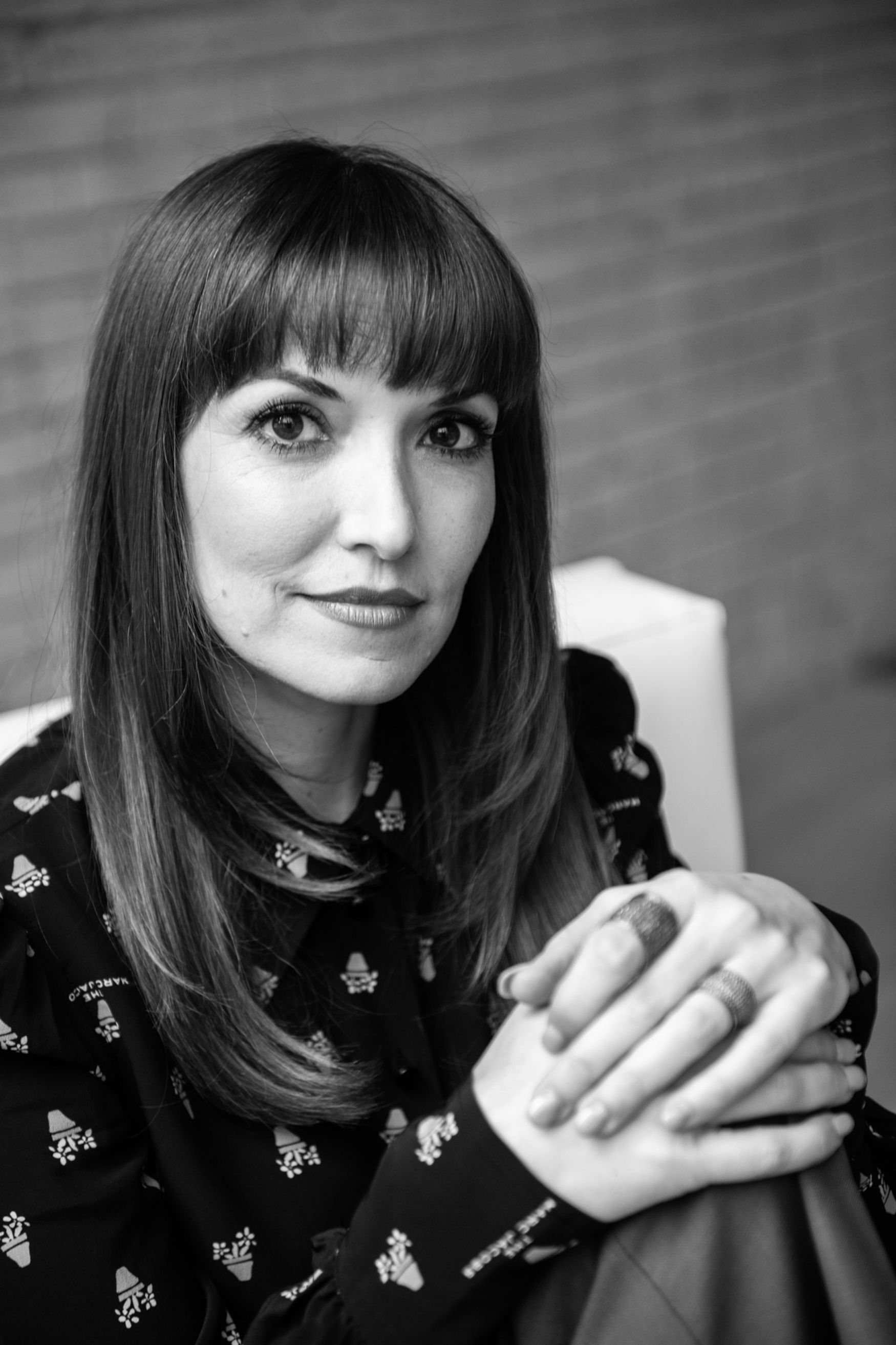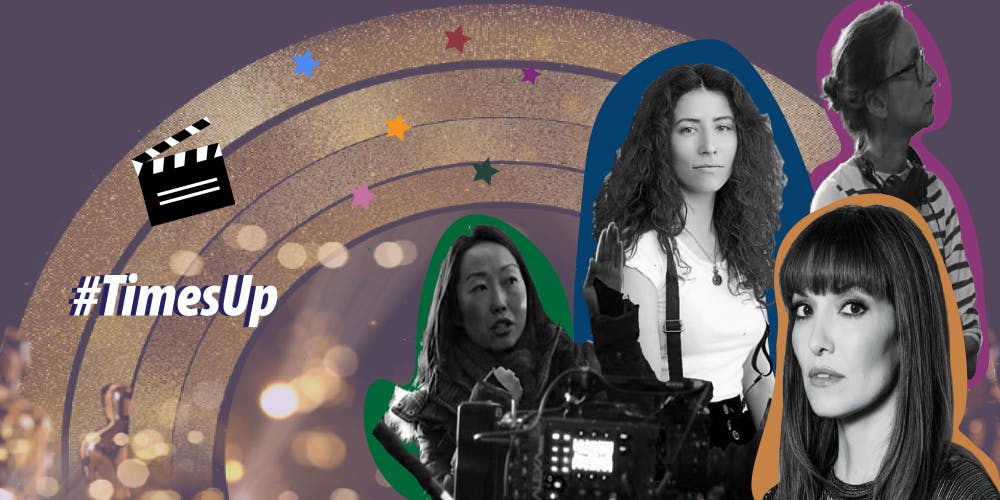by Kellyn Harrison
The opinions and views expressed in this article are those of the author and do not reflect the opinion of Byte or Byte’s editorial board.
The entertainment industry has been under scrutiny for how they include underrepresented communities within their work, specifically for the industry’s lack of inclusion. While this knowledge was never new, talk of this trend became even more apparent since the #MeToo and #TimesUp movement blew up in 2017 after actresses spoke up about sexual harassment cases involving Harvey Weinstein. Both movements brought personal stories of women who face social injustices out of the woodwork and, specifically for the topic of this article regarding the entertainment industry, shaped an activist community whose motive is to demand equal representation and respect from all parties involved in the entertainment industry, i.e. casting, salary, award shows, etc.
Image from Huffpost[/caption]
The first Academy Awards ceremony was in 1929, and it wasn’t until 1977, that Lina Wertmuller became the first woman nominated for Best Director for the film Seven Beauties (Pasqualino Settebellezze). It took 48 years for the Academy to recognize a woman worthy of a Best Director nomination and then another 17 years until they recognized another. It wasn’t until this year when the Academy broke the record for most women nominated for Best Director. The directors are Chloe Zhao for Nomadland and Emerald Fennell for Promising Young Women. However, this record came after the Academy became under fire for nominating zero female directors for the category last year. Snubbing many directors such as Greta Gerwig for Little Woman, Céline Sciamma for Portrait of a Lady on Fire, Marielle Heller for A Beautiful Day in the Neighborhood, and Lulu Wang for The Farewell. Instead, the Academy nominated five men for the category. Natalie Portman made sure to shame the Academy for when she honored the snubbed directors by embroidering their names onto the cape she wore to the Oscars that night. This activism was nothing new for Portman, as she has called out award committees for recognizing work only directed by men in the past. Portman specifically said, “Here are the all-male nominees,” while presenting the Best Director category at the 75th Annual Golden Globes Awards. Today, only seven women have been nominated for Best Director- Lina Wertmuller (1977), Jane Campion (1994), Sofia Coppola (2004), Kathryn Bigelow (2010), Greta Gerwig (2018), Chloe Zhao (2021), and Emerald Fennell (2021). Bigelow has been the only woman to win Best Director. Therefore, I would like to highlight some female directors in the film industry, today, who deserve recognition for their creative filmmaking mindset.
Lorene Scafaria

Image from Coveteur
Scafaria started out writing and acting in New York, but when the director struggled to find writing jobs, she moved to California and started partnering with other female screenwriters. The group, named The Fempire, received the Athena Film Festival Award for Creativity and Sisterhood in 2012. Thereafter, Scafaria started picking up serious job offers from the studios Paramount Pictures and Warner Bros. for the docudrama Sweet Relief and movie Mighty Flynn. But, it wasn’t until the release of Scafaria’s films Seeking a Friend for the End of the World (2012) and The Meddler (2015) that she started being recognized for her directing and screenwriting. However, Scafaria’s directing and screenwriting has stood out the most through the 2019 crime drama film Hustlers, which is what put the director in the running for a 2020 Best Director Oscar nomination. The movie, filmed in just 29 days, is based on Jessica Pressler’s feature article “The Hustlers at Scores." The movie and article tell the story of four women and a man who allegedly drug men and thereafter charge their credit cards thousands of dollars at New York City clubs. The movie had a budget of $20 million and collected $33.2 million after the just first weekend.
Lulu Wang

Image from Financial Times
Wang has been producing award-winning work since 2007, after graduating from Boston College. The Asian-American director won awards at the Boston College Baldwin Film Festival for the films Storyteller and Pisces. Shortly after moving to Los Angeles, Wang interned for a producer, alongside producer Bernadette Bürg, and the two eventually co-founded their production company Flying Box Productions in 2008. Through the project, Wang directed some music videos and shorts, but her breakthrough came through her 2014 feature film, Posthumous. The next year, Wang directed and produced the short film Touch. However, it wasn’t until 2019, that Wang would be recognized as one of the ten “Directors to Watch” by Variety; having come after her second feature film, The Farewell, was listed as one of the top 10 best movies at the Sundance Film Festival. The Farewell follows the story of a Chinese family deciding not to tell their grandmother that she has stage five cancer. Instead, they plan a wedding so the family can gather one last time before she dies. When the film first released, it was only featured in four US theaters; the film grossed 300 thousand dollars opening weekend (July 12, 2019), which put the average for each theater at 87 thousand dollars. This was before the film opened nationwide a month later in August.
Alma Har’el

Image from Fast Company
Har’el quickly grew within the videography industry through many music video directing projects for songs such as “Elephant Gun” in 2009 with the band Beirut. The band would later partner up again with the Israeli-American director to produce music for the director’s 2011 feature film Bombay Beach, which won Best Documentary Feature at the Tribeca Film Festival. Har’el would return to the Tribeca Film Festival in 2016 to showcase her film LoveTrue and be nominated for Best Documentary Feature. The same year, Har’el founded Free the Bid, which calls on production companies to cast more women in their projects in order to fight gender bias. Alongside these amazing projects, Har’el is arguably recognized more for her 2019 feature film Honey Boy. Honey Boy is based on the film writer’s, Shia LaBeouf, personal experiences with dealing with his mental health and coming to terms with his and his father’s relationship. The film was recognized by the Directors Guild of America for Outstanding Directorial Achievement in First-Time Feature Film.
Céline Sciamma

Image from Cision News
Sciamma grew up studying literature but gained an interest in film as a teenager before attending La Fémis, a film and television school in France. Before leaving the school, Sciamma wrote her first script for Water Lilies. The script was part of her final evaluation before graduation, and a chairman on the evaluation panel encouraged the director to make a film out of the project. Water Lilies premiered at the 2007 Cannes Film Festival and was nominated for Best Debut at the 2008 César Awards. In 2011, Sciamma wrote and directed her film Tomboy. Impressively, the film was written in three weeks and filmed in 20 days. Three years later, the director’s 2014 film Girlhood screened at the Cannes Film Festival (2014), Toronto International Film Festival (2014), and the Sundance Film Festival (2015). However, it was Sciamma’s fourth feature film, Portrait of a Lady on Fire, that made critics of the 2020 Oscars nomination list infuriated. The film follows a portraitist who is hired to draw a portrait of a woman in secret, only for the two women to fall in love despite the drawing meant for the upcoming wedding of the subject. The film debuted at the Cannes Film festival and won two awards for best screenplay and queer palm. Other nominations include Best Motion Picture for the 2020 Golden Globes. A recent project of the director was her fifth feature film, Petite Maman, which premiered in February 2021 at the Berlin Film Festival.
Sources: Very Well Mind, Elite Daily, Variety, The New York Times, Oscars, In Style, ABC News, Huffpost, YouTube, Athena Film Festival, IMDB, Jessica Pressler, Coveteur, Time, Forbes, New England Film, LinkedIn, Rolling Stone, Box Office Mojo, Genius, Bombay Beach Film, Free the Bid, César Académie des Arts et Techniques du Cinéma
Images: Cision News, Coveteur, Fast Company, Financial Times, Huffpost
Featured Image: Emily Hanes




















